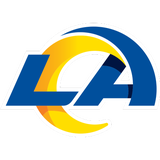
Kroenke rips St. Louis as he seeks approval to move Rams to LA

ST. LOUIS -- The NFL would benefit most by moving the Rams to Los Angeles, leaving behind a St. Louis market that lags economically and a stadium proposal doomed for failure, the team said in its relocation application provided to The Associated Press on Wednesday.
Rams owner Stan Kroenke, a real estate billionaire who still lives in Missouri, has proposed building a $1.8 billion stadium in Inglewood, California, with plans to put the Rams back in the market they left to move to St. Louis in 1995. The San Diego Chargers and Oakland Raiders want to move to the Los Angeles area, too, proposing to share a stadium that would be built in Carson, California. All three teams submitted applications last week, and owners could make a decision on relocation when they meet Jan. 12-13 in Houston.
The Rams' 29-page application, first obtained by the St. Louis Post-Dispatch, lauds the Inglewood site, saying it has already been approved by the league as a potential stadium location and would offer far more than just a home for a sports team.
"The stadium serves as the epicenter for a NFL retail and entertainment district that includes a 6,000 seat theatre and up to 8.5 million square feet of office space, hotel retail and dining options," the Rams said.
The team also offered a withering assessment of why it believes St. Louis is no longer worth staying for.
The application said Kroenke has made "significant investments" since taking control of the Rams in 2010, yet attendance is well below average. The team sold out every home game in St. Louis from its arrival until 2006, but has rarely sold out in recent years.
Taxpayers funded construction of the Edward Jones Dome, which opened the year the Rams arrived. The unusual agreement between the dome authority and the team requires that the dome remain among the top tier of all NFL stadiums. Instead, it is generally considered among the worst, the Rams said, and 12 years of lease negotiations to rectify that were unsuccessful.
Last year, a task force appointed by Gov. Jay Nixon developed plans for a $1 billion stadium along the Mississippi River near the Gateway Arch. Aldermen have already agreed to contribute $150 million toward the project, which also calls for state funding, money from personal seat licenses and funding from the league and the owner.
The Rams, though, said the stadium is doomed to failure. For one thing, it notes that the "rent and operating structure are 20 times what the Rams pay now."
"Any NFL Club that signs on to this proposal in St. Louis will be well on the road to financial ruin, and the League will be harmed," the Rams' application said.
Leaders of the stadium task force called the Rams' assessment of St. Louis and the team's experience there "inaccurate and extremely disappointing."
"St. Louis is a viable NFL market and a good market from an economic standpoint," task force co-chairman David Peacock said. "You can always find a few statistics for any market that can be negative and you can find several statistics for markets that can be positive. We know our corporate base is strong for the NFL. We know that we have 18 Fortune 1000 companies, which rank in the top 15 in the NFL."
As for the team's declining attendance, Peacock noted that the Rams haven't had a winning record since 2003, "and you've had uncertainty relative to their desire to be in the market for three to four years. All of that contributes to the fan interest."
The Rams raised doubts that the St. Louis market, which also has baseball's Cardinals and hockey's Blues, can even support an NFL team moving forward. Peacock disagreed, noting that markets such as Pittsburgh have a smaller corporate base than St. Louis, but no one questions their ability to support three teams.
The application cited two NFL-commissioned studies of the Los Angeles, San Diego, Oakland and St. Louis markets. It says one study characterized the California markets as vibrant and growing, but said St. Louis "lags, and will continue to lag, far behind in the economic drivers that are necessary for sustained success of an NFL franchise."
Another projected St. Louis to be 26th in growth among NFL markets.
Those studies "demonstrate that Los Angeles is a strong market with great opportunity, while St. Louis is a market that will in all likelihood be unable to sustain three professional sports teams," the application said.










